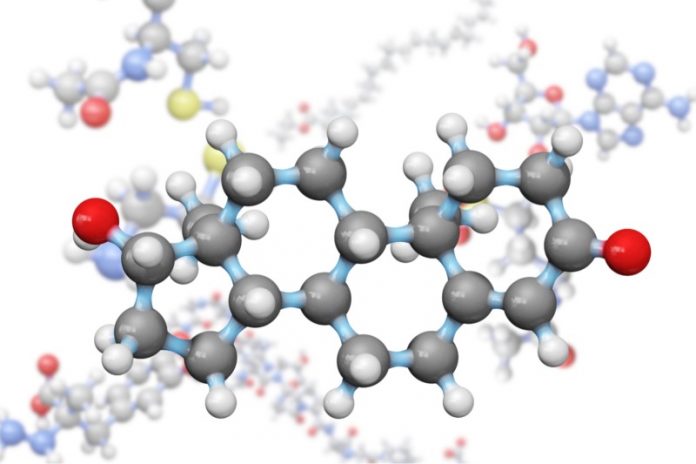Testosterone levels appear to be significantly linked with both the type of intimate relationships men and women engage in and their sexual behavior, according to new research published today in the peer-reviewed The Journal of Sex Research.
The findings from the third British National Survey of Sexual Attitudes and Lifestyles (Natsal-3) provide the first detailed insights into how the hormone is differently implicated in the sexual behavior of men and women at the population level.
The researchers measured testosterone in saliva samples from nearly 4,000 adults and used questionnaires to investigate links between androgen quantity and how people express their sexuality.
Men with higher levels of the hormone were more likely to have had more than one sexual partner at the same time in the last five years, and to have engaged in recent heterosexual vaginal sex, according to the analysis by the London School of Hygiene and Tropical Medicine (LSHTM), UCL, University of Manchester, and the National Centre for Social Research (NatCen).
In women, testosterone levels were significantly higher in those who had ever experienced a same sex relationship and reported solitary sexual activity (masturbation) more recently and more frequently.
Until now, testosterone has commonly been regarded as the biological driver of sexual desire in men, although evidence is inconclusive. Its role in female desire is even less understood.
The authors say the findings help address ‘the deficit’ in attention paid to the role of androgens in women’s sexuality.
“There’s a sparsity of population level data on the differences between men and women in the relationship between testosterone and sexual function, attitudes and behaviour,” says Wendy Macdowall from LSHTM.
“Questions have been raised about the nature of sexual desire in women and how little we understand about what it is that is desired.
“Our data tend to confirm that differences between men and women need to be understood by examining them in the context of social as well as hormonal influences on sexual function and behaviour. Testosterone’s marked link with masturbation among women, in the absence of an observed link with aspects of heterosexual partnered sex, may be seen as consistent with the notion of a stronger moderating effect of social factors on hormonal influences on women’s behaviour.”
Past research on hormones and female sexuality has tended to focus solely on aspects of reproduction such as menstruation. In men, the focus has been on their role in the ability to perform sexually such as to achieve an erection.
This study used a gold standard testing system based on mass spectrometry to analyse saliva samples from 3,722 participants – 1,599 men and 2,123 women – aged 18 to 74.
Participants who had at least one sexual partner in the year prior to interview were asked about problems with sexual function, such as lacking interest in having sex and having trouble getting or keeping an erection. The authors measured a range of sexual behaviours including different practices in the four weeks prior to interview, including frequency of masturbation, and the number/type of partners etc over the past five years/a lifetime.
Participants were also asked their views about different types of sexual relations such as one-night stands.
Overall, there was a stronger link for women than for men between higher testosterone levels and solitary sexual activity as opposed to with a partner. The authors suggest this could be related to the ‘different meanings and motivations women attach to solitary and partnered sex.’








